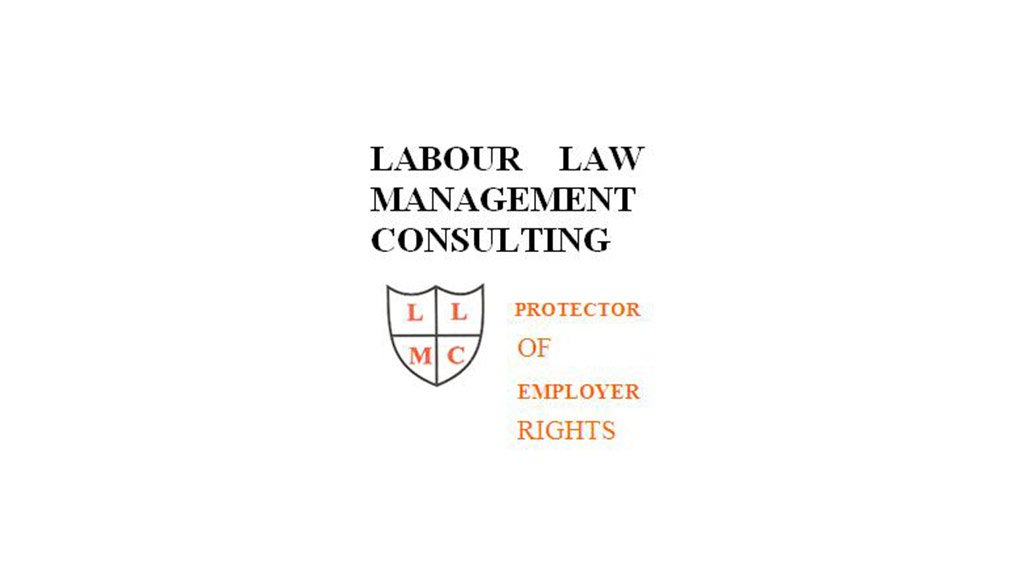Employees who behave in a disruptive manner might do so for a variety of reasons including:
- Abuse of alcohol or other substances
- Incompetence – that is, while the employee is not intentionally disruptive, his/her inability to perform properly disrupts the flow of work in the workplace
- Resentment – Employees may resent receiving a low or zero pay increase,
- Unwillingness to work – there are many employees who would prefer to sponge off their families instead of working. These employees may behave disruptively either because they are happy to get fired. Then they can tell their families that it was not their fault and go and make some money at the CCMA by complaining about their ‘unfair dismissal’
- having received a warning or other disciplinary action, ill treatment, being overlooked for promotion, the manager’s fancy car or life in general.
- Industrial action – employees trying to pressurise the employer may, instead of going on a fully fledged strike, embark on disruptive behaviour.
- Dislike of a colleague or a boss
Disruptive behaviour at the workplace can be seriously damaging to the effectiveness of business operations and can even result in losses for the employer. For example, disruptive behaviour can cause:
- Bosses to lose their tempers
- The speed of production to slow down
- Legal disputes arising from unprocedural discipline and dismissal
- Service to clients to suffer
- Loss of orders or of clients
- Injury to employees or other people
- The quality of products to deteriorate
- Damage to property
- Clashes between employees and managers or amongst employees.
It is therefore most important that the employer acts swiftly yet within the law in order to minimise the damage and send a strong message that such behaviour will not be tolerated. Especially where an employee’s disruptive behaviour is habitual the employer needs to follow the correct disciplinary procedure to prove that the employee is guilty. Otherwise there is a danger of the disruptive employee being reinstated by the CCMA, Labour Court or bargaining council.
In the case of Mofokeng vs Afrikaans Import and Export cc (2001, 11 BALR 1184) the employee was dismissed for disrupting the workplace after he had been caught under the influence of alcohol and had refused to obey the instructions of a superior. However, the employer reinstated the employee as it wanted to give him one more chance and commuted the dismissal to a final warning. Later the employee was again dismissed, this time for driving a forklift under the influence of alcohol, damaging the employer’s property with the forklift, smashing the windows of the company quarters in which he lived and loudly threatening management while the owner was on an international telephone call. Instead of calling a disciplinary hearing the employer fired the employee on the spot. The CCMA stated that the existence of the final warning did not exempt the employer from holding a disciplinary hearing.
Employees are advised, if they are aggrieved by anything at work, not to disrupt the workplace lest they end up out on the street. Instead, aggrieved employees should lodge formal grievances and/or CCMA disputes.
Employers are advised, when faced with ‘disruptive employees to:
- Avoid losing their tempers
- Use their most expert labour law specialist to help:
- carefully and thoroughly investigate the cause of the problematic behaviour
- arrive objectively and unemotionally at the route cause of the problem
- decide upon a legally compliant, practical and effective course of action appropriate to the particular type of disruption and to its specific cause. Such action may vary from a warning to a disciplinary hearing or from counselling to training or treatment.
To view our experts’ debate opinions on thorny labour law issues please go to www.labourlawadvice.co.za and click on the Labour Law Debate item in the menu.
Written by Ivan Israelstam, Chief Executive of Labour Law Management Consulting. He may be contacted on (011) 888-7944 or 0828522973 or on e-mail address: ivan@labourlawadvice.co.za. Go to: www.labourlawadvice.co.za.
EMAIL THIS ARTICLE SAVE THIS ARTICLE ARTICLE ENQUIRY
To subscribe email subscriptions@creamermedia.co.za or click here
To advertise email advertising@creamermedia.co.za or click here











